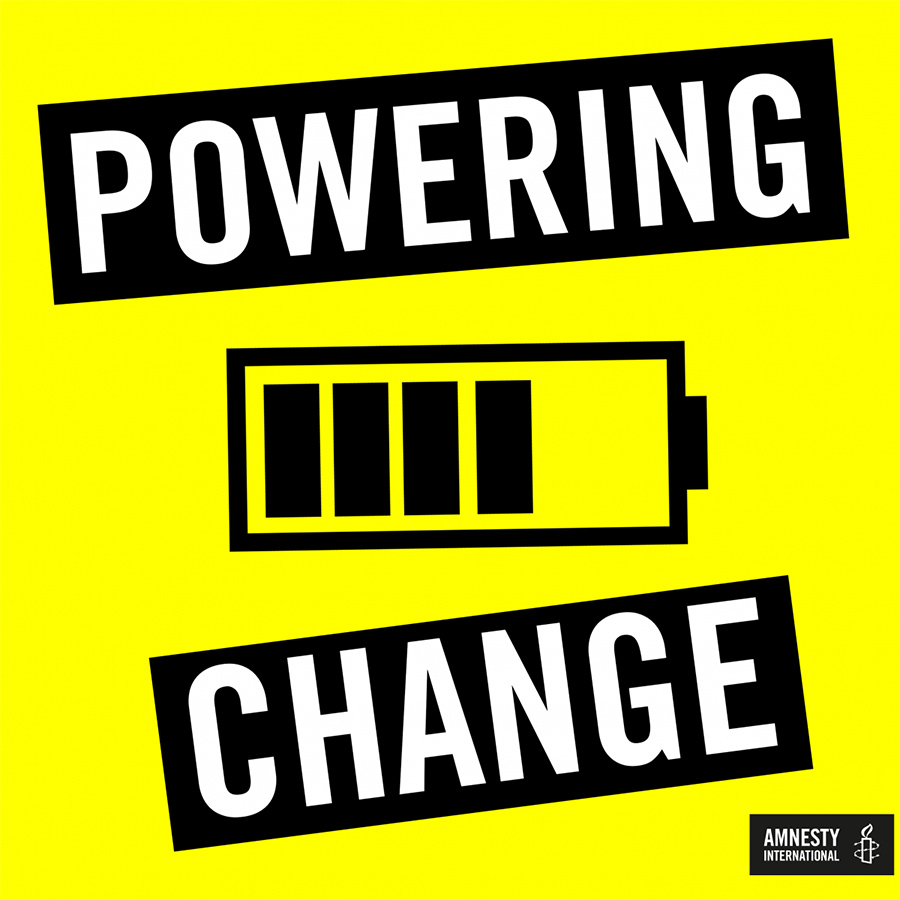Climate change is not only the great environmental emergency of our time, but also an unprecedented human rights crisis. It threatens a wide range of human rights, including the rights to water, to health and to life itself. And unfortunately, many of our current technology-focused climate solutions, such as electric vehicles or solar power, threaten those rights. Climate solutions must not sacrifice people or the planet.
This February, Amnesty International Canada embarks on a year-long project to bring awareness to these issues and to call on Canada to put human rights and Indigenous knowledges at the centre of climate justice and decarbonization initiatives.
To bring stories from front-line communities alive, Amnesty partnered with Ad Astra Comix to create a short comic book. Follow Samira and Andy as they learn about rechargeable batteries and human rights. On this page, you will also find a text-based, accessible version of the comic book.
Read the comic, share it, and join our campaign for a just energy future: #RechargeForRights!
If you are interested in sharing this comic with your class or youth group, get in touch with us for a copy of our Comic Book User Guide. It contains information, discussion questions and more.
Background:
As companies scramble to obtain land to develop renewable energy projects or lucrative mining concessions, communities and Indigenous peoples are under incredible pressure to protect their sources of water and livelihoods, ensuring there is adequate land to farm or graze animals, or forests where traditional harvesting methods bring in necessary income. Multi-generational contracts and benefit sharing agreements put unknowable burdens on future generations that are difficult to understand and plan for as our climate continues to change. As guardians of the land, many Indigenous peoples are saying no to resource extraction and energy projects in their territories.
This is a pivotal moment for human rights. Will governments, extractives and renewable energy companies follow the path taken over the last century by oil, gas and mining companies, the one that led to serious and ongoing human rights abuses and environmental harms, or will they chart a new path based on respect for human rights and a centering of Indigenous knowledges?
For Canada, this question is particularly important as different levels of government and jurisdictions take steps towards ending fossil fuel dependency, protecting jobs and transitioning to renewable energy. All levels of government in Canada must double down on human rights respect as part of their investment strategy in renewable energy and ‘green’ transportation projects.
Canadian companies are at the forefront of lithium and other mineral exploration around the world. Canada must prevent them from doing harm and hold them accountable for human rights abuses when they do. Legislated mandatory human rights due diligence is one step in the right direction. Learn why this is important and what you can do.
To learn more, please visit our webpages on Energy Transition and Climate Justice. To join our Specialized Team on Corporate Accountability and Climate Justice, where you can join and help lead campaigns in solidarity with environmental human rights defenders, climate advocacy, or powering a just transition, please send an email to Elena Dumitru, National Leadership Development Coordinator (edumitru@amnesty.ca).






















